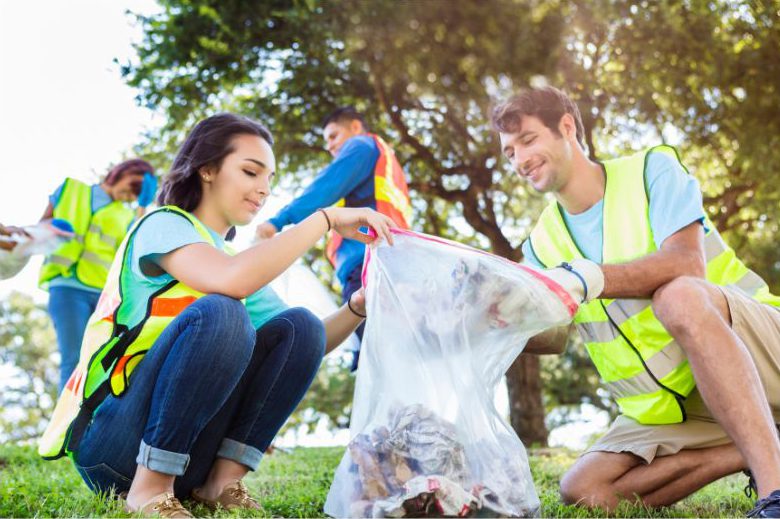
Building Teen Communication and Soft Skills for Online Learning
Posted by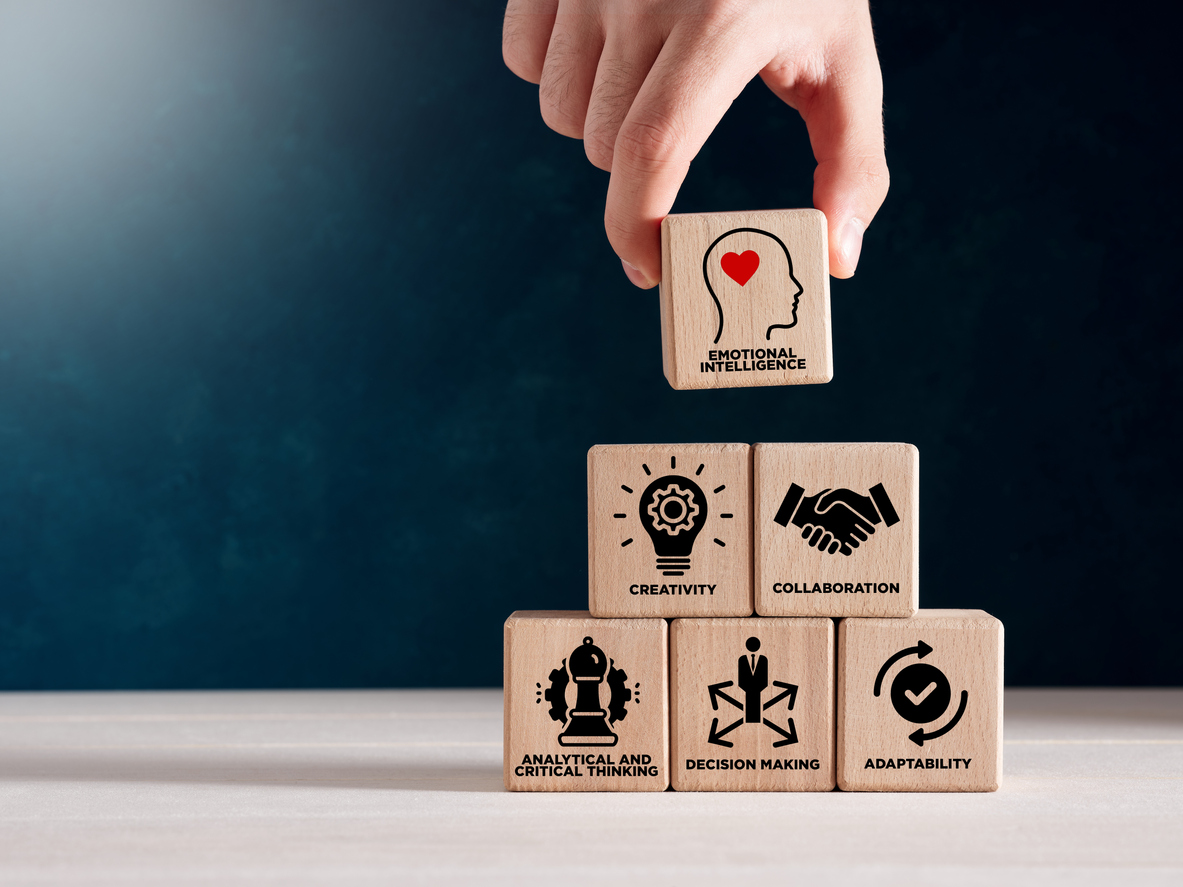
Communication and soft skills help you build strong relationships, resolve conflicts, and understand others better, whether you’re at school, home, or, well, pretty much anywhere. Strong communication skills are particularly crucial for online classes, as they determine how effectively you connect with others. Speaking up in discussions, asking questions, and checking in with your teacher and classmates helps you feel more involved and less lost in the virtual noise.
According to Merriam-Webster, communication is “a process by which information is exchanged between individuals through a common system of symbols, signs, or behavior.” Being able to share your ideas and feelings clearly means people can really listen to you and trust you. But good communication means more than talking, too. It includes listening, noticing how others feel, and working together to solve problems.
Are communication skills the same as soft skills? Not quite. Keep reading to learn more about all these skills that are important for education online — and everywhere else!
Communication and soft skills
Your high school success focuses on earning good grades and mastering various subjects. And those hard skills are important for sure. But the less obvious set of skills — soft skills — is just as important, and they’re your secret ingredient for success in and out of the classroom.
These skills capture your personal qualities, habits, and attitudes, shaping how you interact with others and manage yourself. Unlike a test grade, they guide how you work, not just what you know. Research from the World Economic Forum and major companies shows that these communication and soft skills are quickly becoming the most in-demand traits in the modern workforce. They also help you stand out on college applications, job interviews, and more.
What are soft skills?
Soft skills are personal qualities and interpersonal abilities that help you interact effectively with others. Unlike hard skills, which are technical abilities or knowledge you can learn in a class, soft skills encapsulate how you work and connect with others. These skills make it easier to build relationships, tackle challenges, and succeed in school and your future career.
A shift to online learning (whether for a class, summer session, or program) has made having soft skills, in particular strong communication skills, more crucial than ever. While you can’t get an A+ on a soft skills test, they’re just as important as your grades.
Soft skills examples
Let’s expand our soft skills definition with some specific skills and real-world examples.
 Communication
Communication
Speaking clearly, writing well, and listening to others (more on this key soft skill later!). As naturalist, author, and PBS host Pat McMillan said, “Excellent communication doesn’t just happen naturally. It is a product of process, skill, climate, relationship, and hard work.”
Examples of soft skills at work
Presenting to class: You’re giving a presentation on a historical figure. You practice speaking clearly, making eye contact with your classmates, and using visual aids. At the end of your presentation, you answer questions clearly and confidently.
Working on a group project: During a group project, you notice one of your team members isn’t participating. Instead of getting upset, you message them to ask if they need help or have ideas to share.
Teamwork
Collaborating with others to reach a common goal, like a group project. Think of Michael Jordan’s wise words: “Talent wins games, but teamwork and intelligence win championships.”
Examples of soft skills at work
Group project: When your team is assigned a big history presentation, one of you takes the lead on research, another focuses on creating the slides, and the third creates the script.
Sports team: After a tough loss, the captain gathers everyone together to discuss what went wrong (and right!). Instead of blaming each other, you calmly discuss how to improve for the next game.
Problem-solving
Thinking through a challenge and finding a creative solution. Author Voltaire once said, “No problem can withstand the assault of sustained thinking.”
Examples of soft skills at work
Science fair project: Your experiment isn’t working as planned. Instead of giving up, you review your data, brainstorm a few potential reasons for the failure, and change one variable at a time to see what works.
Fundraising event: The student council is planning a school dance, but you’re short on funds. You create a new idea — a “teacher talent show” that you can charge admission for to cover the budget shortfall.
Adaptability
Being flexible and open to change when things don’t go as planned. Author Pearl Zhu wrote, “An adaptive mind has better learning capability.”
Examples of soft skills at work
Class schedule change: Your favorite teacher leaves mid-semester, and you have to adjust to a new teaching style. Instead of getting frustrated, you participate actively in the class and take time to get to know the teacher better.
Online learning challenges: During a sudden school closure because of a nasty influenza outbreak, you have to switch to online classes. You quickly learn how to use the new platform, organize your digital files, and set up a productive workspace at home.
Time management
Juggling all your assignments, clubs, social life, perhaps a part-time job or sports, without getting overwhelmed. Try this advice from author and educator Stephen Covey, who wrote, “The key is not to prioritize what’s on your schedule but to schedule your priorities.”
Examples of soft skills at work
Juggling responsibilities: You’re on the soccer team, in the drama club, and have a part-time job. You use a digital calendar to schedule your classes, practices, rehearsals, and work shifts and block out specific times for homework so nothing falls between the cracks.
Studying for finals: Instead of cramming, you plan your study schedule for finals a week in advance, breaking down subjects into smaller chunks and focusing on one topic at a time to make your workload manageable and reduce stress.
Leadership
Inspiring and guiding others toward a shared goal or purpose. A strong leader provides clear direction, manages resources wisely, and makes tough decisions when necessary. Marilyn Hewson, CEO of Lockheed Martin, said, “Good leaders organize and align people around what the team needs to do. Great leaders motivate and inspire people with why they’re doing it.”
Examples of soft skills at work
Student government: You run for class president, creating a campaign focused on improving school spirit. After you win, you lead the student council to organize new events, delegate tasks to other members, and listen to feedback to make sure your initiatives succeed.
Peer tutoring: You excel at math, so you volunteer to tutor a younger student who’s struggling. Instead of just giving the answers, you guide them through the problems, explaining concepts and empowering them to understand the material on their own.
Emotional intelligence
Understanding and managing your own emotions and recognizing the feelings of those around you, showing empathy for others, and reacting appropriately to different situations. In other words, “emotional intelligence allows us to respond instead of react” (anonymous).
Examples of soft skills at work
Conflict with a friend: Your friend seems upset and is giving you the silent treatment. Instead of getting angry, you approach your friend, ask what’s wrong, and listen without interrupting. You acknowledge your friend’s feelings and apologize for any misunderstanding.
Receiving a bad grade: You get a low grade on a test you studied hard for. Instead of feeling discouraged and giving up, you recognize your frustration, count to ten to cool off, and meet with your teacher to discuss how you can improve.
These are just a few examples of soft skills, but there are actually many more, such as creativity, decision-making, customer service, a positive attitude, self-motivation, attention to detail, and trustworthiness.
What are good communication skills?
Communication warrants its own section because strong communication skills rank among the top soft skills that educators and employers value. Plus, people who communicate well also fare better in relationships with their peers, teachers, employers, partners — in other words, everyone!
Communication, like the category of soft skills, is an umbrella of sorts under which different aspects of communication fall. So what are good communication skills? Those that encompass each of these categories:
- Listening: Actively focusing on what someone is saying rather than passively allowing their words to wash over you while you wait your turn to speak. When you listen actively, you ask clarifying questions, summarize what you’ve heard to confirm understanding, and make eye contact (if it doesn’t make you uncomfortable) to show you're engaged.
- Speaking: Clearly articulating your own thoughts verbally so others can understand them. Good speaking skills include using a tone that matches your message and audience. (You’re probably not gonna talk to your friends like you’d speak to your teachers, right?)
- Writing: Communicating your ideas, thoughts, and opinions on paper (or digitally via Google Docs, for example). Again, you have to know your audience here. A written assignment for school warrants spelling and grammar checks and a more formal tone, organization, and logical flow. Snapchatting or texting a friend is more casual, but you’re still writing to share a message the receiver can understand without any verbal cues.
- Nonverbal communication: How you communicate without words. Body language is the key element here. Your posture, facial expressions, and hand gestures communicate your feelings and attitudes. Think shrugs, eyerolls, nods, or thumbs up, for example. Sitting in class with your arms crossed and avoiding eye contact might tell your teacher that you’re uninterested in the discussion (even if you really are paying attention). Leaning forward and making eye contact at lunch, though, might show your friends you’re really into the conversation. The tricky part? Nonverbal cues can reinforce what you say or, when they contradict your words, create confusion.
- Interpersonal skills: Used to interact with others and build relationships. These skills encompass the “big picture” of communication, like empathy (understanding others’ feelings). Other skills in this category include showing respect, managing conflict constructively, and working well with people from diverse backgrounds — and high school is the perfect place for you to learn and practice all these skills.
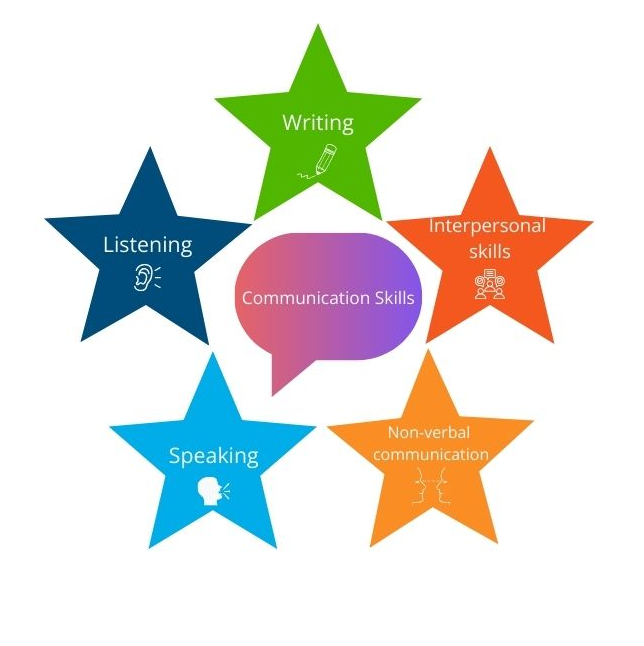
Communication skills examples
Communication and soft skills go hand in hand; you really can’t excel in one without the other. Communication is like your computer’s operating system. Soft skills like problem-solving, teamwork, and leadership are the different apps you run. But without the core operating system, none of the other apps can run. So what do these communication and soft skills look like in practice? Glad you asked!
Collaboration and teamwork
- You’re working on a science project with two classmates who have very different ideas on how to approach the experiment. Instead of getting frustrated, you listen to both, find the strengths in each of their suggestions, and propose a hybrid plan incorporating everyone’s input. This strategy helps each classmate feel valued and listened to, and leads to a successful project.
- When your school’s robotics club faces a tight deadline before a competition, you notice that some of the new team members are struggling with getting the software to communicate with their robot. You pause from your focus on getting your robot’s arm to work to sit with them and help them troubleshoot. Because you’ve been in the club longer, you can share your knowledge and empathy, strengthening the team’s cohesion and problem-solving skills.
Empathy and conflict resolution
- You learn that two of your besties are in a heated argument caused by a misunderstanding. Instead of taking sides, you suggest heading to the mall. While window shopping, encourage them to share their perspectives without interruption and suggest they try to see things from the other’s point of view. As a neutral mediator, you help them resolve the conflict and preserve their friendship.
- You notice a classmate who’s usually very talkative has been quiet and withdrawn. You gently ask if they’re okay and listen when they share that they’re dealing with a personal issue. You offer support and reassurance while creating a safe, judgment-free space for them to be vulnerable.
Critical thinking
- For a class debate on climate change, you’re assigned the opposition position even though you personally agree with the other side. Instead of using surface-level arguments, you research the topic from multiple angles, read sources with different perspectives, and find flaws in your own beliefs to prepare for a strong, well-rounded argument.
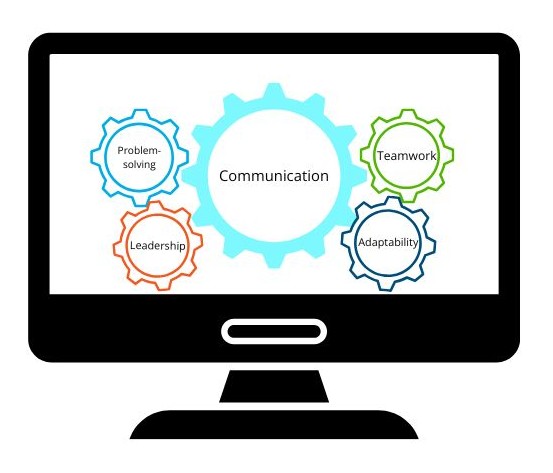
10 tips for building your communication and soft skills
Solid soft skills can give you a competitive edge in school, work, and life. And even if you’re not the competitive sort, having a “toolbox” of soft skills to pull from can help you navigate nearly all environments and situations. Does it take time to build these skills? Absolutely. Here are 10 tips to get you started.
- Practice active listening. Don’t just hear what others say. Lean in to listen. Put your phone away, make eye contact (even if just briefly), and focus on their words. Ask questions to show you’re engaged and clarify what they mean.
- Join a club or team. Extracurricular activities are great for practicing communication and soft skills like teamwork, collaboration, and leadership. Whether it’s band, drama club, cross country, robotics, or volunteer work in the community, you’ll learn to work with different types of people toward a shared goal.
- Take a public speaking or debate class. These classes are specifically designed to help you become a more confident and articulate speaker. You’ll learn how to organize your thoughts, project your voice, and present your ideas clearly in front of an audience. Another option? Check if your school has a Mock Trial or Model UN club.
- Volunteer. This activity teaches you empathy and responsibility. By working with others and facing new challenges you wouldn’t necessarily experience in school, you’ll gain important interpersonal skills and a better understanding of others’ needs.
- Seek leadership roles. You don’t have to be the student council president to lead. Take initiative in a group project, organize a study group, or start a new club. These roles teach you how to motivate others and manage a team.
- Learn to manage your time. Practice creating a schedule — and stick to it! Use a planner or calendar app to manage assignments, extracurriculars, your social life, and family responsibilities. This routine helps you develop self-discipline (a key soft skill for school and work!).
- Give and receive feedback. Whether you’re working on a group project, performing in an arts club, or taking a creative writing class, offer helpful, constructive feedback to your classmates. And be open to receiving feedback, too, which shows critical thinking and a willingness to improve.
- Ask for help when you need it. Knowing when to ask for help is a sign of resilience and self-awareness. Don’t understand an assignment? Message the instructor. Struggling with a personal issue? Talk to a trusted adult. These actions help you sharpen your ability to identify a problem, seek a solution, and advocate for yourself, which is huge!
- Practice empathy. Try understanding things from another person’s point of view, especially during a disagreement, whether it’s a class project or blocking a scene for the school play. This skill, foundational to emotional intelligence, helps you navigate conflicts, build stronger relationships, and collaborate more effectively.
- Use proper communication channels. Learn the difference between sending a formal email to a teacher and a DM to a friend. Using appropriate language, tone, and grammar in different situations is part of being a good communicator.
Communication and soft skills - takeaways
Communication and soft skills are your key to success, in and out of the classroom. Hard skills like math and reading are necessary, but so are your personal qualities and how you interact with others.
What are good communication skills? A combo of different abilities allowing you to connect effectively with others, including active listening, clear speaking and writing, nonverbal awareness, and interpersonal skills.
Ultimately, strong communication skills serve as a foundation for other soft skills, empowering you to collaborate on a team, lead with purpose, solve problems creatively, and cultivate lasting relationships. By practicing these skills now, in person and online, you prepare yourself for success in high school and whatever path you choose after graduation.
Blog Categories
- Career Advice
- College Admissions
- Colleges & Universities
- Financial Aid and Scholarships
- For Counselors
- For Parents
- For Students
- Gap Years
- Mental Health and Wellness
- Online Learning
- Performing and Visual Arts
- STEM Majors and More
- Summer Programs
- Teen Volunteering
- Trade & Vocational Schools
- Tutoring & Test Prep

Organization with listings on TeenLife? Login here
Register for Free
We’re here to help you find your best-fit teen-centered academic and enrichment opportunities.
Forgot Password
"*" indicates required fields

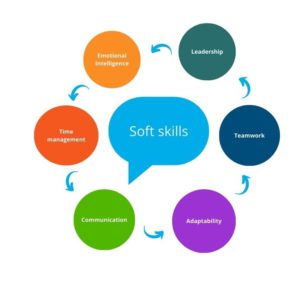 Communication
Communication






